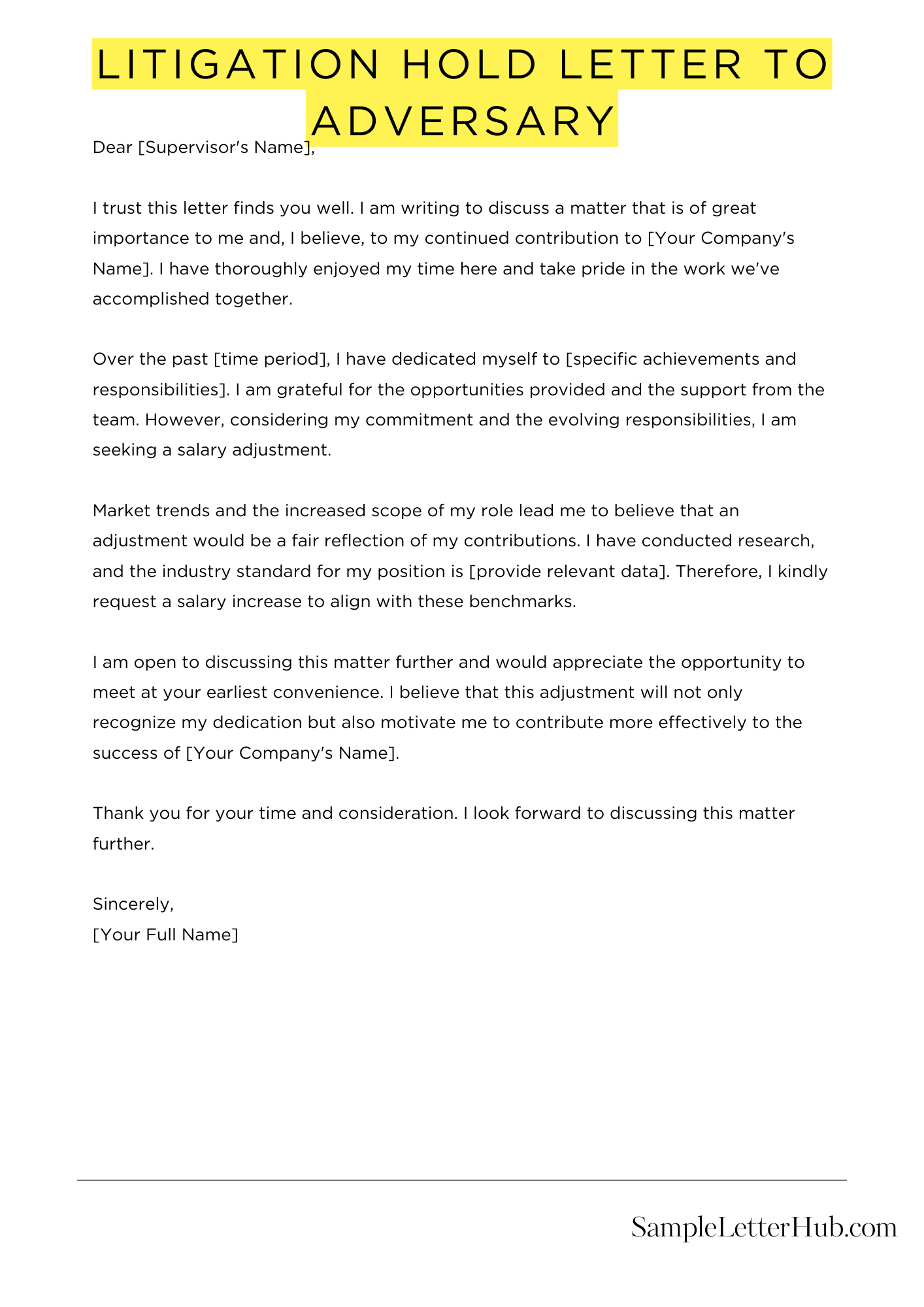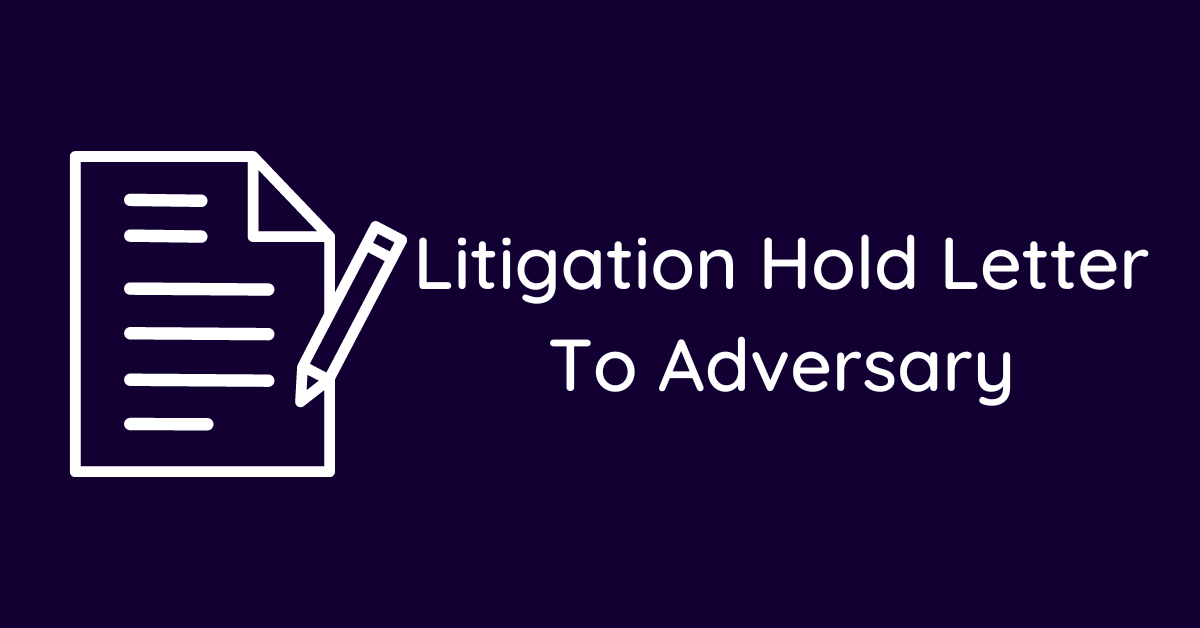A litigation hold letter to adversary is a formal request to preserve evidence that may be relevant to a potential or ongoing lawsuit. It is typically sent by one party to another party who is likely to have possession of relevant evidence. The purpose of the letter is to prevent the destruction or alteration of evidence that could be used in the lawsuit.
In this article, we will provide you with several templates, examples, and samples of litigation hold letters to adversary. These templates are designed to make it easy for you to draft your own letter, even if you have no prior experience with legal writing. We will also provide you with tips on how to write an effective litigation hold letter.
By using one of our templates, you can save time and ensure that your letter is legally compliant.
Litigation Hold Letter to Adversary
Dear [Adversary Name],
Please be advised that [Your Company Name] is currently involved in a legal dispute that may involve documents and information in your possession.
To preserve evidence relevant to this dispute, we request that you immediately implement a litigation hold on all documents and information related to the following matters:
* [List of specific matters]
This litigation hold applies to all forms of documents and information, including:
* Electronic documents (e.g., emails, text messages, spreadsheets)
* Physical documents (e.g., paper files, contracts)
* Audio and video recordings
* Social media posts
Please take the following steps to implement the litigation hold:
* Suspend the destruction or alteration of any documents or information related to the listed matters.
* Identify and preserve all existing documents and information related to the listed matters.
* Notify all employees and agents of the litigation hold and instruct them to comply.
* Report any changes in the location or status of relevant documents or information.
Your cooperation in implementing this litigation hold is essential to ensure the fair and timely resolution of this dispute. Failure to comply with this request may result in adverse consequences, including sanctions by the court.
If you have any questions or require further clarification, please do not hesitate to contact us.
Sincerely,
[Your Name]

How to Write a Litigation Hold Letter to Adversary
A litigation hold letter is a formal request to an opposing party to preserve all relevant documents and electronically stored information (ESI) that may be relevant to a potential or pending lawsuit.
Purpose of a Litigation Hold Letter
The purpose of a litigation hold letter is to prevent the spoliation of evidence, which occurs when a party intentionally or negligently destroys or alters evidence that is relevant to a lawsuit.
Who Should Send a Litigation Hold Letter?
A litigation hold letter should be sent by the party who is anticipating filing a lawsuit or who has already filed a lawsuit.
What to Include in a Litigation Hold Letter
A litigation hold letter should include the following information:
- The name of the case and the court in which it is pending (if applicable)
- The names of the parties to the lawsuit
- A description of the documents and ESI that are to be preserved
- The date by which the documents and ESI must be preserved
- The consequences of failing to preserve the documents and ESI
How to Send a Litigation Hold Letter
A litigation hold letter should be sent by certified mail, return receipt requested.
Enforcing a Litigation Hold Letter
If the opposing party fails to comply with a litigation hold letter, the party who sent the letter may seek sanctions from the court.
FAQs about Litigation Hold Letter To Adversary
What is a Litigation Hold Letter?
A Litigation Hold Letter is a formal notice sent to an adversary in a legal dispute, requesting them to preserve all relevant documents and electronic data that may be relevant to the case.
When should a Litigation Hold Letter be sent?
A Litigation Hold Letter should be sent as soon as possible after a legal dispute has been identified or is reasonably anticipated.
What should a Litigation Hold Letter include?
A Litigation Hold Letter should clearly state the purpose of the hold, identify the specific documents and data to be preserved, and provide instructions on how the data should be preserved.
What are the consequences of failing to comply with a Litigation Hold Letter?
Failure to comply with a Litigation Hold Letter can result in sanctions from the court, including adverse inferences, discovery sanctions, and even contempt of court.
How can I ensure that a Litigation Hold Letter is effective?
To ensure the effectiveness of a Litigation Hold Letter, it is important to send it to all relevant parties, provide clear instructions, and monitor compliance with the hold.

